A Joyous Moment
When Rion Holcombe opened the letter that changed his life, the entire world watched with him. His beaming smile and infectious joy were felt through the screen.


It was more than just what it seemed. To Rion and his family, it represented breaking down barriers and vindication against all those who doubted him. It was his time to shine now, and the haters were all silenced by the letter.
His Family Knew
Rion’s mother always knew he would have a great life. Despite obvious obstacles, she saw a shining light in him that much of the world couldn’t.
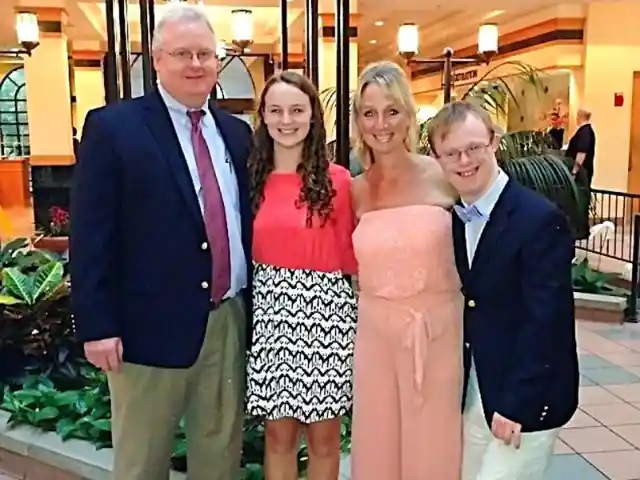
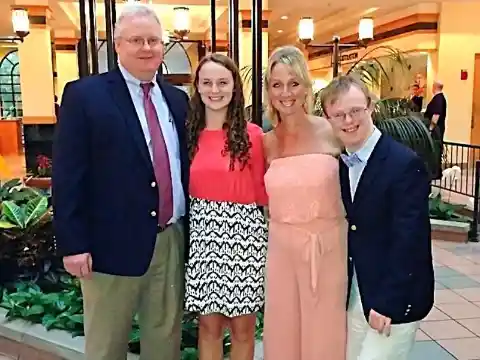
The world could be a harsh place for a child to grow up in. It was worse for kids like Rion, who had special needs and had to navigate the world through various adversities.
Changing Mindsets
Rion was born with Down syndrome. Although it is a reasonably common diagnosis (around 1 in 700 children in the U.S annually), many archaic mindsets still exist.


Unfortunately, more education is required for people to change mistaken beliefs about the condition, making it harder for children with Down syndrome to get the recognition they deserve.
The Struggles
Many parents of children with Down syndrome report disappointing interactions with teachers and other custodians in their early years. It seems that even among adults, attitudes sometimes need some updates.
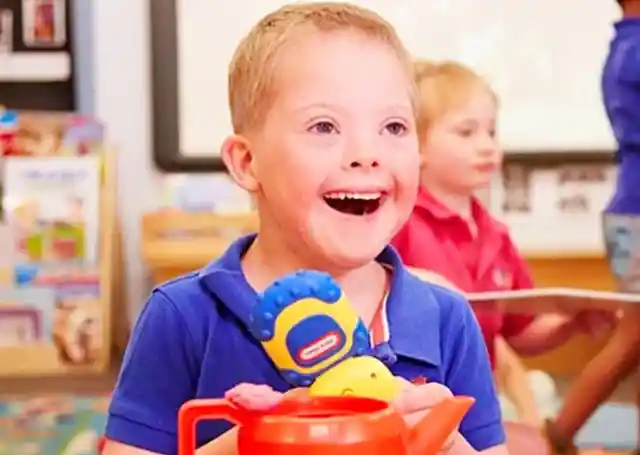
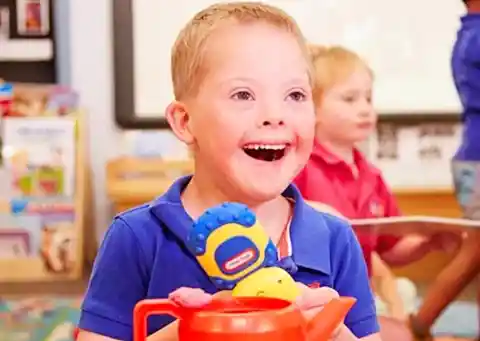
Kids with Down syndrome may indeed struggle with learning disabilities. However, even kids without the condition excel at different levels. The same is true of kids with Down syndrome, but such kids are often thought to all be slow.
A Sad Truth
These kinds of outdated stereotypes are sadly still present today. When it came to Rion, his family knew he was far from being a slow learner.
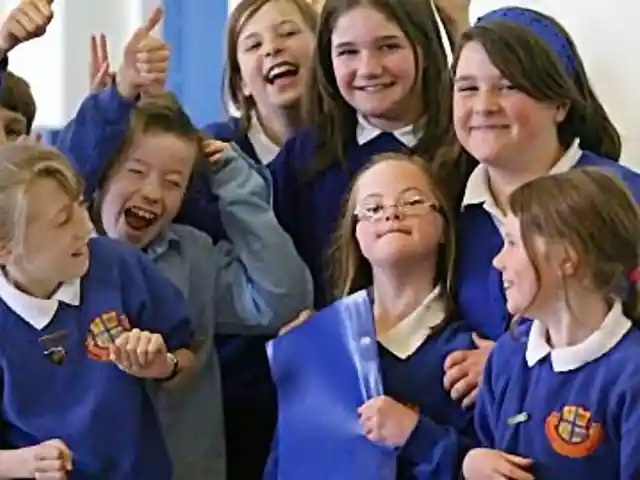
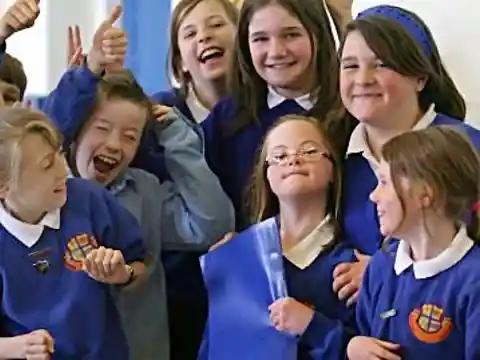
However, it seems not everyone could see this in him. Whether as a result of prejudice, or just ignorance, he was subjected to doubt from an early age.
Doubters
When Rion was just 5, he had to be evaluated by a school psychologist. Her findings were discussed with his parents. Knowing Rion’s ability better than anyone, they expected positive news.


Instead, they received a report that made them very disappointed. What the psychologist said was beyond concerning.
The Report
According to Rion’s former school psychologist, the child was on a sliding scale of intellectual growth. Her assessment of him was, therefore, very troubling.


The implications of the assessment were difficult to stomach. It basically meant that Rion’s intellectual growth was expected to “plateau” around 13.
Worse Predictions
Rion’s story has sparked a much-needed dialogue about how such kids are often underestimated. Many other parents came forward and revealed similar stories.
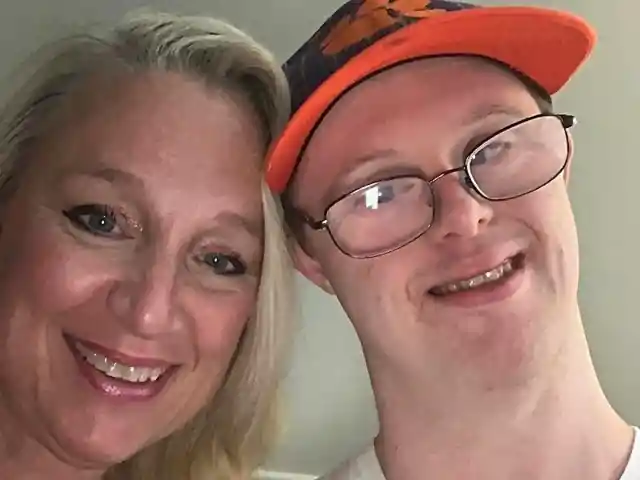

It turns out that many kids like Rion are predicted to “struggle intellectually” and face hardships. In some extreme cases, parents were given unconscionable advice.
Burdens
Some parents were told by doctors, teachers, and counselors that kids with Down syndrome end up being huge burdens on their families. Sadly, their advice to avoid this shows a severe lack of empathy and compassion in society for the condition.


In such cases, parents are advised to consider institutionalizing their kids for having Down syndrome. Luckily, parents like Rion’s refused to even consider such alternatives and see their kids as being just as capable as any other child.
Ignorance
This ignorance was once a norm in society and is sadly still prevalent among many cultural groups today. Children with physical and mental disabilities are often considered embarrassments or burdens and are forced to spend their lives in institutions.


The psychologist’s assessment of Rion puzzled his family. As the years wore on, they could not reconcile the prediction with what they saw at home from Rion. It was soon apparent that he was indeed capable of a lot.
The Moment
Rion’s intellectual and behavioral development continued to improve throughout his life. By the time he was 19 years old, he harbored similar ambitions to any teenager his age.
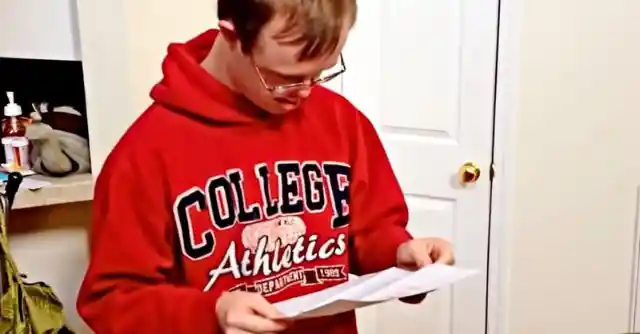
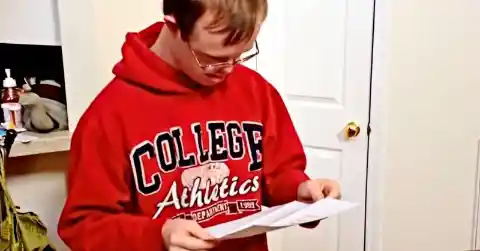
The problem was that society, internet trolls, and even so-called professionals had never given him a fair chance. However, this extraordinary young man was about to prove them all wrong when he received a much-anticipated letter.
The Letter
When Rion opened the letter and read its contents, his family had the foresight to record the moment. It was later shared on TikTok and quickly went viral for Rion’s heartwarming reaction and huge, beaming smile when he got the news.


So what made it all so amazing? Far from intellectually plateauing at the age of 13 like his psychologist had predicted, the fateful letter confirmed that Rion Holcombe had been accepted to college.
Exposed Reality
Rion’s video was well-received by the overwhelming majority of people who viewed, liked, and shared it. However, the comments that came after exposed many ignorant views that still existed in society.


Aside from being shocked that a child with Down syndrome was intellectually capable of making it to college, many people were also stunned to discover that such colleges even existed.
A Brave New World
Thankfully, far from the disturbing past when people with mental disabilities were hidden away and institutionalized, the world now offers many opportunities for them to live regular lives.


In fact, many people may be surprised to learn the truth. Hundreds of colleges and higher learning institutions are available to kids with Down syndrome, autism, and many other conditions that affect developmental and intellectual ability.
An Inspiration
Rion Holcombe completed a two-year “LIFE Program” at Clemson University in South Carolina. He now works two jobs that allow him to pay all his own expenses and live a far better quality of life than people might assume.


He also has a girlfriend with Down syndrome, and the couple regularly goes on dates together. Rion thus stands as a beacon and an inspiration to many. His story proves that archaic notions that seek to preclude special needs persons from society have no place anymore. In order to protect the privacy of those depicted, some names, locations, and identifying characteristics have been changed and are products of the author's imagination. Any resemblances to actual events or places or persons, living or dead, are entirely coincidental